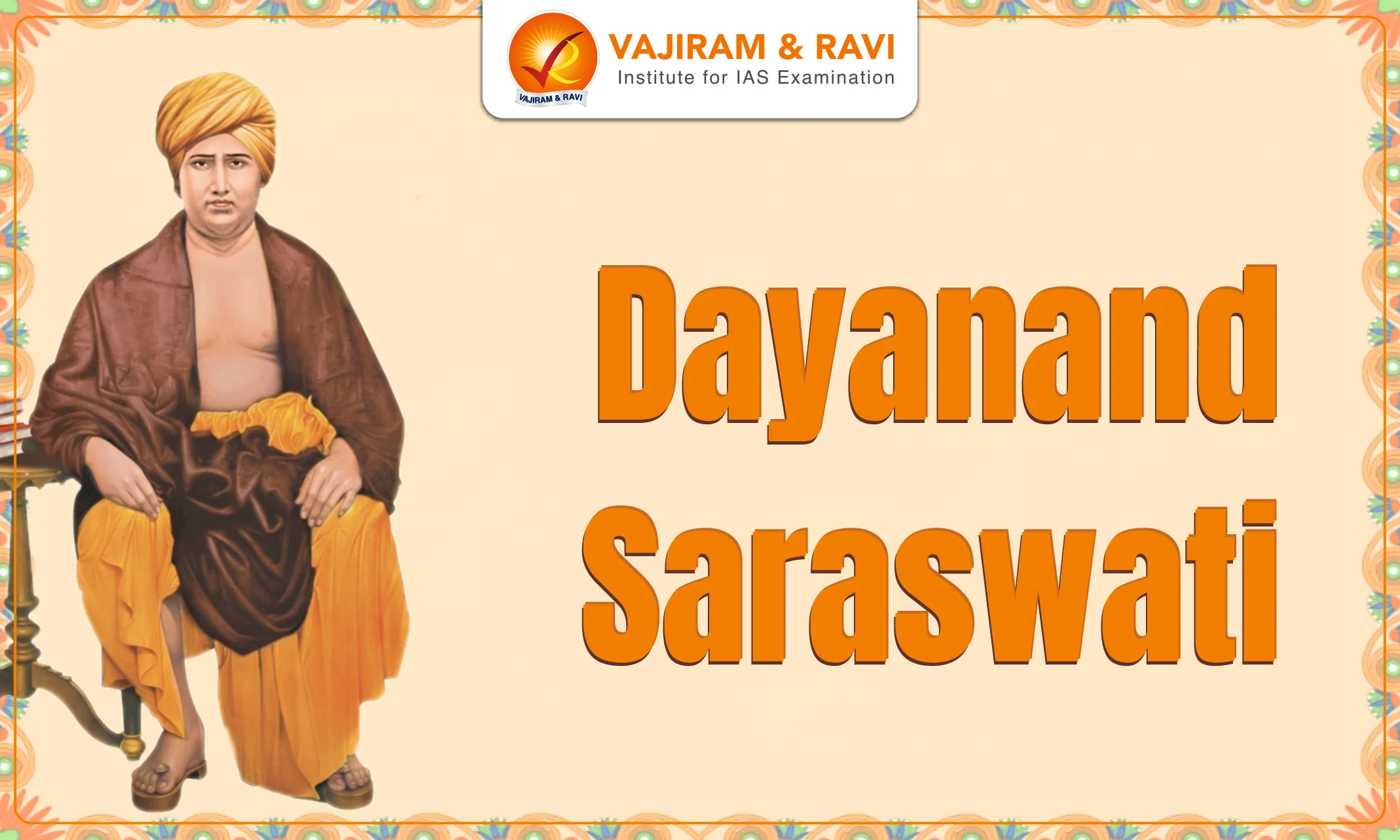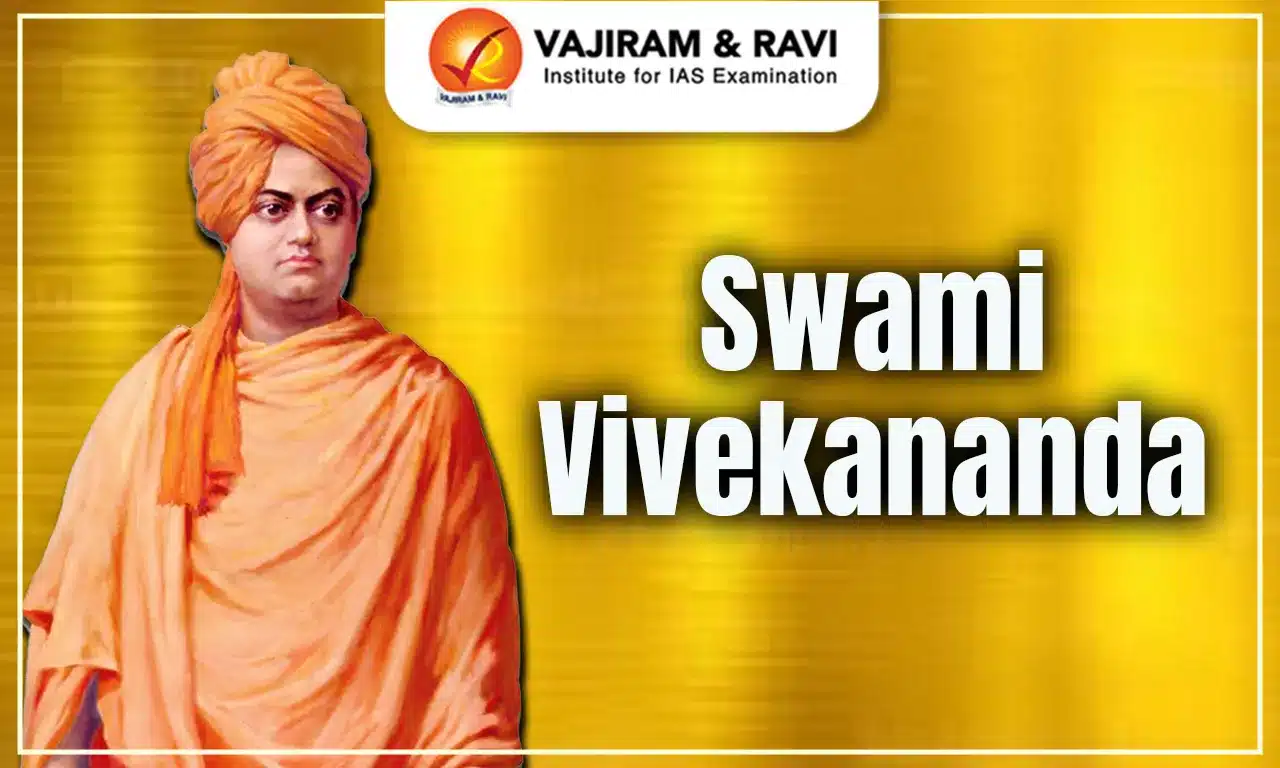Dayanand Saraswati, born Mool Shankar Tiwari, was a prominent Hindu religious leader, philosopher, and social reformer who founded the Arya Samaj. His life's mission was to purify Hinduism from practices like idol worship and caste discrimination. Dayanand was a crucial figure in the Indian Renaissance, advocating for a return to the Vedic way of life and the principles of truth, righteousness, and knowledge. His teachings and reforms were crucial in shaping modern Hinduism and inspiring the Indian independence movement.
About Dayanand Saraswati
Dayanand Saraswati was born on February 12, 1824, in Tankara, a small town in the present-day state of Gujarat, India. His father, Karshanji Lalji Tiwari, was a wealthy and devout Brahmin deeply rooted in orthodox Hindu traditions. Dayanand was raised in a religious environment, where he was taught the importance of rituals, ceremonies, and devotion to the deities.
Dayanand Saraswati Early Life and Education
Dayanand Saraswati exhibited extraordinary intelligence and a strong spiritual inclination from an early age. He was initiated into studying Sanskrit and the Vedas at a young age, a tradition followed by Brahmin families. His early education was steeped in studying Hindu scriptures, rituals, and practices, which laid the foundation for his later spiritual journey.
- Turning Point: The turning point in Dayanand’s life came at the age of 14, during the festival of Shivaratri.
- He witnessed a mouse nibbling at the offerings placed before a Shiva idol, leading him to question the power of idols and the rituals surrounding them.
- This incident sparked a deep sense of spiritual disillusionment, prompting him to seek the true essence of religion and spirituality.
- Life of Ascetic: The deaths of his younger sister and uncle from cholera deeply affected him, leading him to ponder the meaning of life and death.
- At the age of 21, he renounced his family and home to pursue a spiritual quest, eventually becoming a wandering ascetic.
- He travelled extensively across India, meeting various scholars, sages, and spiritual leaders, and engaged in intense study of the Vedas and Upanishads.
Influences on Dayananda Saraswati
Dayanand Saraswati was profoundly influenced by the teachings of the Vedas, which he considered to be the ultimate authority on truth. His spiritual journey was shaped by the guidance of several key figures, including his guru, Swami Virajanand Dandeesha, a blind sage from Mathura.
- Influence of Swami Virajanand: Swami Virajanand, who was a staunch critic of idolatry and superstition, played a pivotal role in shaping Dayanand’s views on religion.
- Under his tutelage, Dayanand immersed himself in studying the Vedas and ancient Sanskrit texts, rejecting the Puranic traditions and rituals that he believed corrupted the true essence of Hinduism.
- Influence of Vedas: Dayanand’s interpretation of the Vedas led him to advocate for a form of monotheism, where the worship of a formless, omnipotent God was emphasised over the worship of idols.
- His teachings were also influenced by his encounters with various social reformers and scholars of his time, who shared his vision of a reformed and revitalised Hindu society.
- Influence of Modern Ideas: Dayanand's philosophy was heavily influenced by rationalism and scientific thinking. He sought to eliminate superstitions and irrational practices from Hinduism, promoting a more logical and empirical approach to spirituality.
Dayanand Saraswati Contributions to Indian Society
Dayanand Saraswati made significant contributions to Indian society through his religious, social, and educational reforms. His efforts were aimed at reviving the Vedic traditions and purging Hinduism of superstitions and corrupt practices.
- Foundation of Arya Samaj (1875): Dayanand Saraswati founded the Arya Samaj, a Hindu reform movement, in 1875 in Bombay (now Mumbai). The Arya Samaj promoted the values of truth, knowledge, and social equality and aimed to purify Hinduism by returning to the teachings of the Vedas.
- Promotion of Vedic Education: Dayanand Saraswati was a strong advocate for Vedic education, which he believed was essential for the moral and spiritual upliftment of society. He established numerous schools and gurukuls (traditional Vedic schools) across India, where students were taught the principles of the Vedas, along with modern subjects.
- The DAV (Dayanand Anglo Vedic) schools were founded in 1886 to realise Swami Dayanand Saraswati's vision. The first DAV School was founded in Lahore, with Mahatma Hansraj as headmaster.
- Social Reforms: Dayanand Saraswati was a vocal critic of social injustices such as caste discrimination, untouchability, and the subjugation of women.
- He called for the abolition of the caste system, advocated for social equality and the upliftment of the oppressed classes, and supported the cause of women's education.
- Paropkarini Sabha: In 1882-83, Dayanand Saraswati founded the Paropkarini Sabha to publish and preach his works and Vedic texts.
- Literary Contribution: Dayanand’s seminal work, "Satyarth Prakash" (The Light of Truth), was a critical exposition of Vedic teachings and a critique of various Hindu practices and rituals. It remains a key text for followers of Arya Samaj.
- Other books include the Sanskar Vidhi, Rigved Bhashyam, etc.
- Nationalism: His call for “Back to the Vedas” resonated with the Indian independence movement, emphasising self-reliance and rejecting foreign domination. Many freedom struggle leaders, including Subhas Chandra Bose and Lala Lajpat Rai, were influenced by Dayanand’s ideas on nationalism and social reform.
- He is also credited with coining the term swaraj (self-rule) or "India for Indians" in 1876, which Lokmanya Tilak and Mahatma Gandhi later adopted.
Dayanand Saraswati Philosophy
Dayanand Saraswati’s philosophy was rooted in the Vedas, which he regarded as the infallible source of all knowledge and truth. His teachings emphasised the importance of rationality, morality, and spiritual knowledge.
- Monotheism: Dayanand Saraswati advocated for the worship of a single, formless God (referred to as "Om" in the Vedas), rejecting the practice of idol worship and polytheism. He believed that the worship of idols and multiple deities was a distortion of the true Vedic religion.
- Rejection of Rituals and Superstitions: Dayanand was a staunch critic of the elaborate rituals, sacrifices, and superstitions that had become prevalent in Hinduism. He argued that these practices had no basis in the Vedas and were introduced by self-serving priests to exploit the masses.
- Revival of Vedic Traditions: Dayanand called for a return to the Vedas. He emphasised the relevance of Vedic teachings in the modern world and sought to purify Hinduism by eliminating corrupt practices and superstitions.
- Importance of Education: Dayanand believed that education was the key to social and spiritual progress. He emphasised the need for a balanced education that included both spiritual knowledge and modern scientific learning. He also advocated for women's education, believing that they played a crucial role in society's moral and spiritual development.
- Moral and Ethical Living: Dayanand’s teachings stressed the importance of living a moral and ethical life guided by the principles of truth, righteousness, and non-violence. He believed that individuals should strive to lead a life of virtue, self-discipline, and service to humanity. He also stressed rationality and scientific inquiry, which aligned with the intellectual revival that characterised the Indian Renaissance.
Dayanand Saraswati Death
Swami Dayanand Saraswati died under suspicious circumstances in 1883 after his public criticism of the Maharaja of Jodhpur. Some alleged the Maharaja’s cook poisoned him, allegedly influenced by individuals opposed to his reformist ideas. While this charge was never proven in court, according to a famous story about Dayanand’s death, the killer confessed to Dayanand Saraswati and was subsequently forgiven.
Dayanand Saraswati Legacy
Dayanand Saraswati’s legacy is enduring and far-reaching, with his teachings and reforms continuing to influence Indian society and Hinduism to this day. India's second President, Sarvapalli Radhakrishnan, referred to Dayanand Saraswati as "a maker of modern India". Some key aspects of his legacy include:
- Arya Samaj’s Impact: The Arya Samaj remains a powerful force for social and religious reform in India and abroad. The organisation continues to promote Vedic teachings, social equality, and the upliftment of the underprivileged.
- Education: Dayanand Anglo-Vedic schools and colleges envisioned by Dayanand Saraswati remain important educational centres. Providing quality education even in the most remote places, DAV schools have become popular over time.
- Inspiration for Reform Movements: Dayanand’s teachings have inspired numerous social and religious reform movements in India. His call for social equality and the rejection of caste discrimination resonates with reformers and activists.
- Influence on Nationalism: Dayanand Saraswati’s ideas on nationalism, Swadeshi, and the revival of Hindu culture have had a lasting impact on Hindu nationalist movements in India. His teachings continue to inspire those who seek to promote and preserve India’s cultural and spiritual heritage.
Last updated on January, 2026
→ Check out the latest UPSC Syllabus 2026 here.
→ Join Vajiram & Ravi’s Interview Guidance Programme for expert help to crack your final UPSC stage.
→ UPSC Mains Result 2025 is now out.
→ UPSC Notification 2026 Postponed for CSE & IFS which was scheduled to be released on 14 January 2026.
→ UPSC Calendar 2026 has been released.
→ UPSC Prelims 2026 will be conducted on 24th May, 2026 & UPSC Mains 2026 will be conducted on 21st August 2026.
→ The UPSC Selection Process is of 3 stages-Prelims, Mains and Interview.
→ Prepare effectively with Vajiram & Ravi’s UPSC Prelims Test Series 2026 featuring full-length mock tests, detailed solutions, and performance analysis.
→ Enroll in Vajiram & Ravi’s UPSC Mains Test Series 2026 for structured answer writing practice, expert evaluation, and exam-oriented feedback.
→ Join Vajiram & Ravi’s Best UPSC Mentorship Program for personalized guidance, strategy planning, and one-to-one support from experienced mentors.
→ UPSC Result 2024 is released with latest UPSC Marksheet 2024. Check Now!
→ UPSC Toppers List 2024 is released now. Shakti Dubey is UPSC AIR 1 2024 Topper.
→ Also check Best UPSC Coaching in India
Dayanand Saraswati FAQs
Q1. What was Swami Dayanand Saraswati famous for?+
Q2. Does Arya Samaj believe in God?+
Q3. Why did Dayanand Saraswati founded Arya Samaj?+
Q4. What were the religious thoughts of Swami Dayananda Saraswati?+
Q5. What was the political slogan of Dayanand Saraswati?+
Tags: dayanand saraswati quest

















